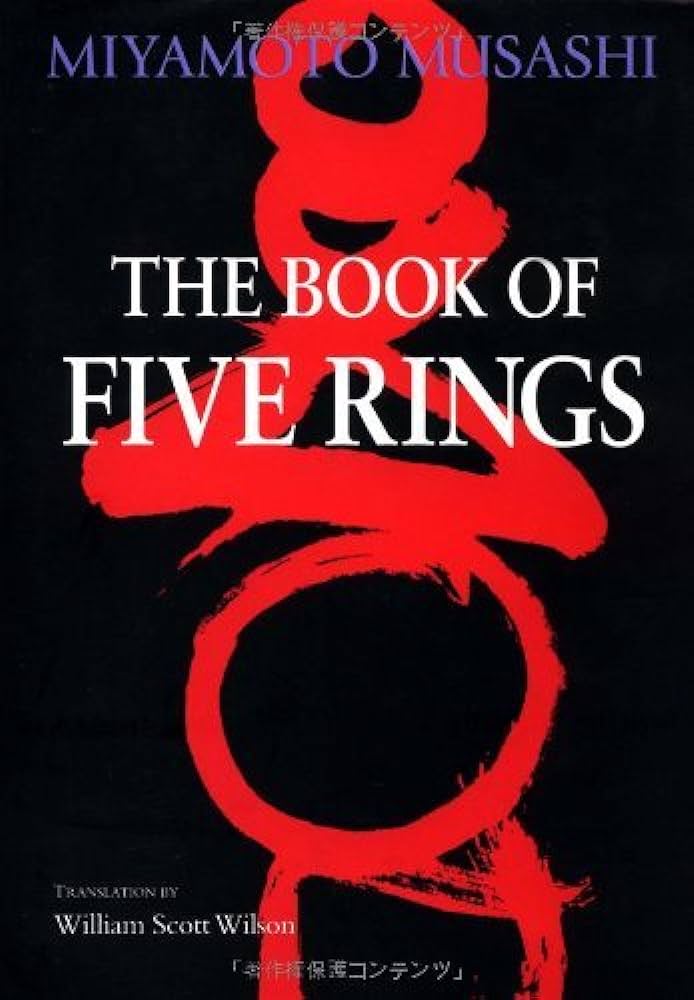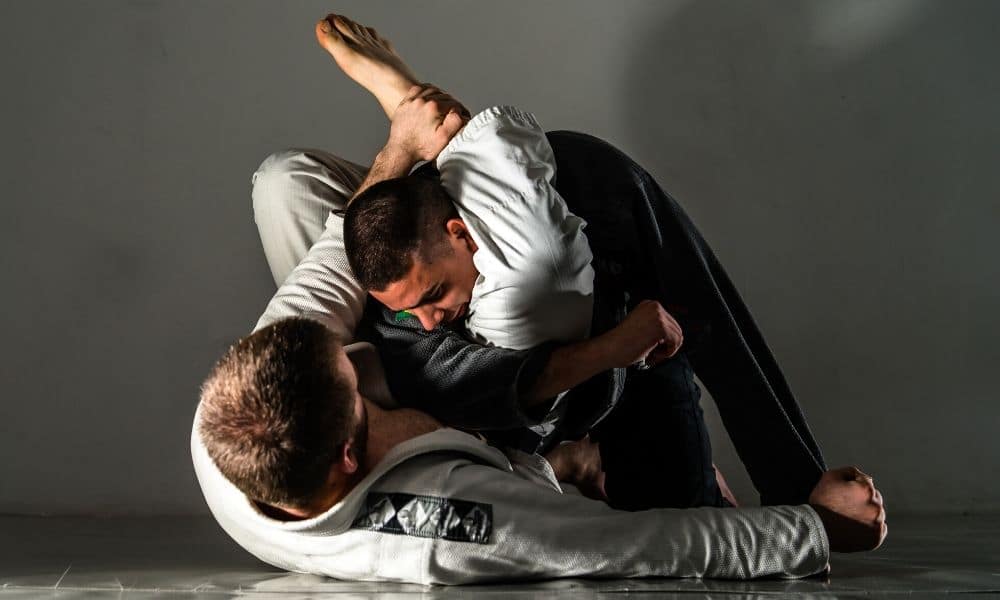“The Book of Five Rings: A Guide to Strategy and Mastery” Applying Concepts to BJJ

“The Book of Five Rings” is a classic text on martial arts strategy and philosophy written by the legendary Japanese swordsman Miyamoto Musashi in the 17th century. Musashi, renowned for his unparalleled skill in swordsmanship, distills his wisdom into five books, each focusing on a different aspect of strategy and combat. While the text primarily pertains to the art of swordsmanship, its principles can be applied to various martial arts disciplines, including Brazilian Jiu-Jitsu (BJJ).
The first book, “The Ground Book,” emphasizes the importance of understanding the fundamentals and basics. Musashi stresses the significance of mastering the terrain and adapting to different environments. In BJJ, this translates to having a strong foundation in basic techniques such as grips, escapes, and positions like guard, mount, and side control. Just as Musashi advises warriors to be adaptable on different types of ground, BJJ practitioners must be versatile in various positions and scenarios.
The second book, “The Water Book,” explores the concept of fluidity and adaptability in combat. Musashi compares the fluidity of water to the ability to move effortlessly and respond to the opponent’s actions. In BJJ, practitioners often use the concept of “flow” to transition seamlessly between techniques and positions. By staying relaxed and fluid, practitioners can maintain control and exploit openings in their opponent’s defense.
 “The Fire Book,” the third book, focuses on the importance of timing and decisiveness in battle. Musashi emphasizes the need for swift and decisive action when the opportunity arises. In BJJ, timing plays a crucial role in executing techniques such as sweeps, submissions, and escapes. By understanding the rhythm of the match and capitalizing on openings, practitioners can gain a strategic advantage over their opponents.
“The Fire Book,” the third book, focuses on the importance of timing and decisiveness in battle. Musashi emphasizes the need for swift and decisive action when the opportunity arises. In BJJ, timing plays a crucial role in executing techniques such as sweeps, submissions, and escapes. By understanding the rhythm of the match and capitalizing on openings, practitioners can gain a strategic advantage over their opponents.
The fourth book, “The Wind Book,” delves into the psychology of combat and the importance of strategy and deception. Musashi advocates for the use of feints, misdirection, and psychological warfare to outmaneuver opponents. In BJJ, practitioners often use strategic deception to set up submissions or sweeps by creating false openings or baiting their opponents into predictable reactions.
Finally, the fifth book, “The Void Book,” transcends the physical aspects of combat and explores the spiritual and philosophical dimensions of martial arts. Musashi discusses the concept of “mushin” or “no-mind,” a state of total awareness and presence in the moment. In BJJ, achieving a state of flow and mindfulness is essential for performing at peak levels and making split-second decisions during sparring or competition.
 In relating the principles of “The Book of Five Rings” to Brazilian Jiu-Jitsu, one can see how Musashi’s timeless wisdom applies to the art of grappling. By mastering the fundamentals, adapting to different situations, flowing with the opponent’s movements, timing actions effectively, and employing strategic deception, practitioners can enhance their performance and deepen their understanding of BJJ. Ultimately, the lessons of Musashi’s classic text serve as a guide for achieving mastery not only in martial arts but also in life itself.
In relating the principles of “The Book of Five Rings” to Brazilian Jiu-Jitsu, one can see how Musashi’s timeless wisdom applies to the art of grappling. By mastering the fundamentals, adapting to different situations, flowing with the opponent’s movements, timing actions effectively, and employing strategic deception, practitioners can enhance their performance and deepen their understanding of BJJ. Ultimately, the lessons of Musashi’s classic text serve as a guide for achieving mastery not only in martial arts but also in life itself.



